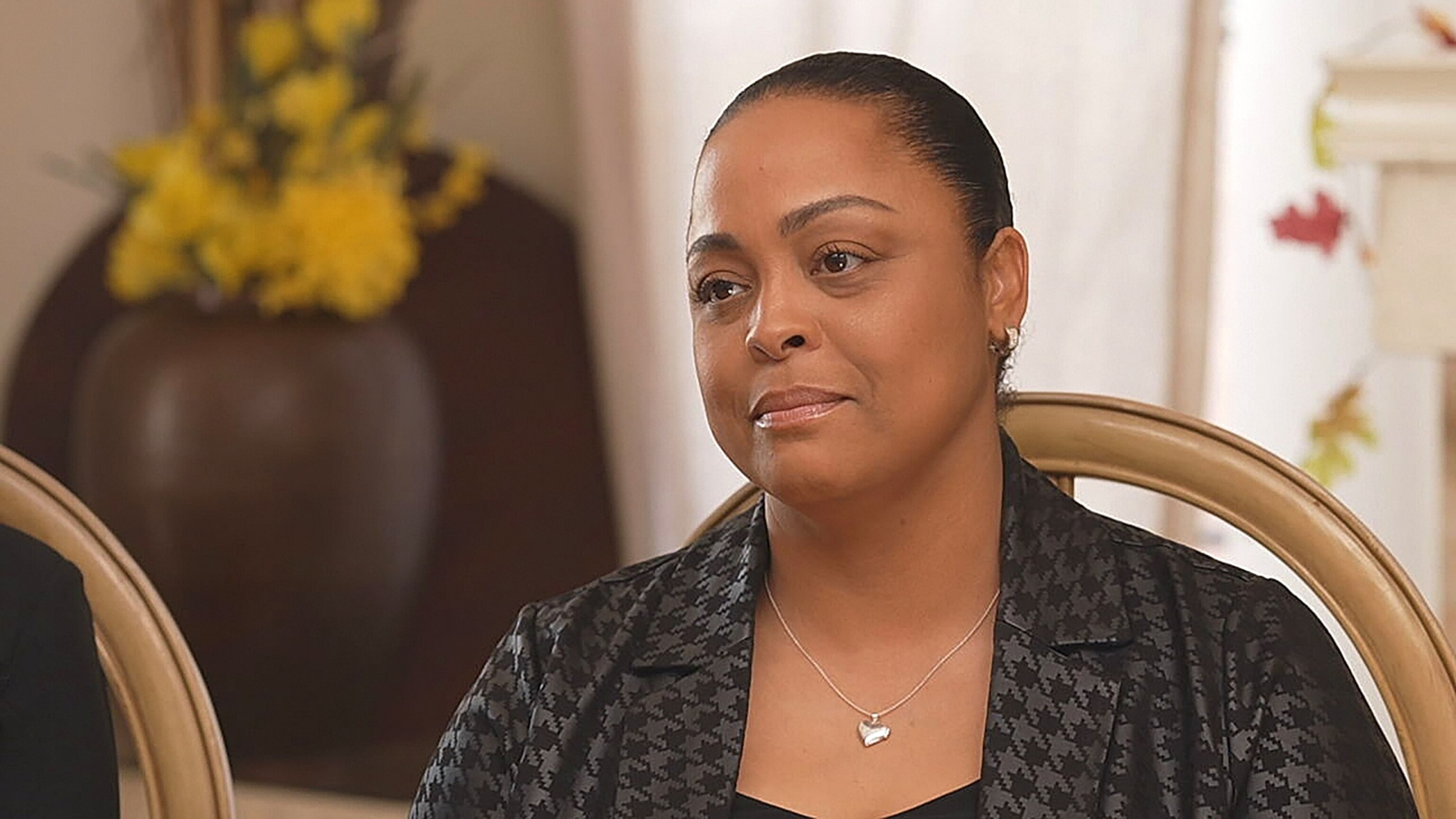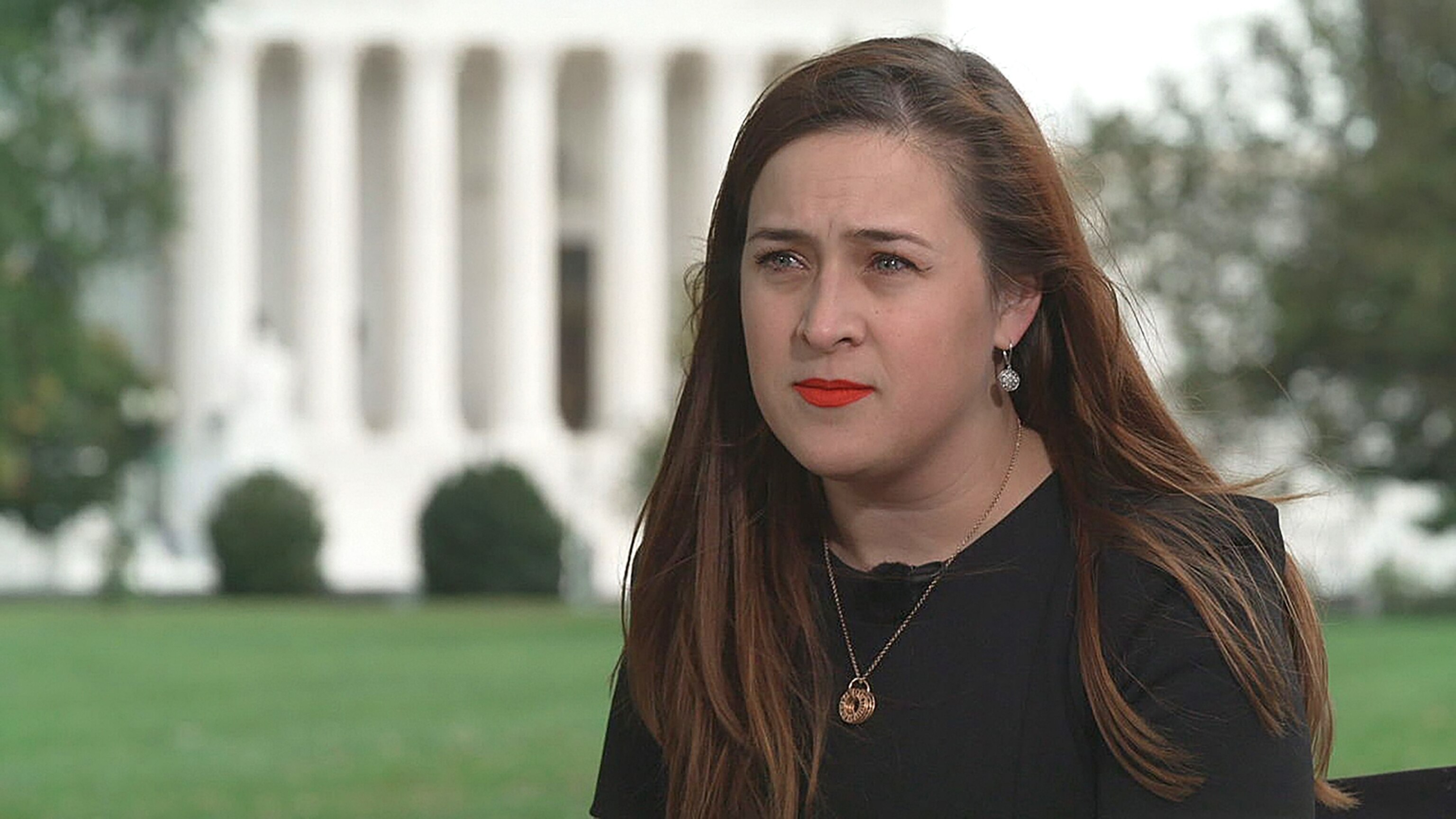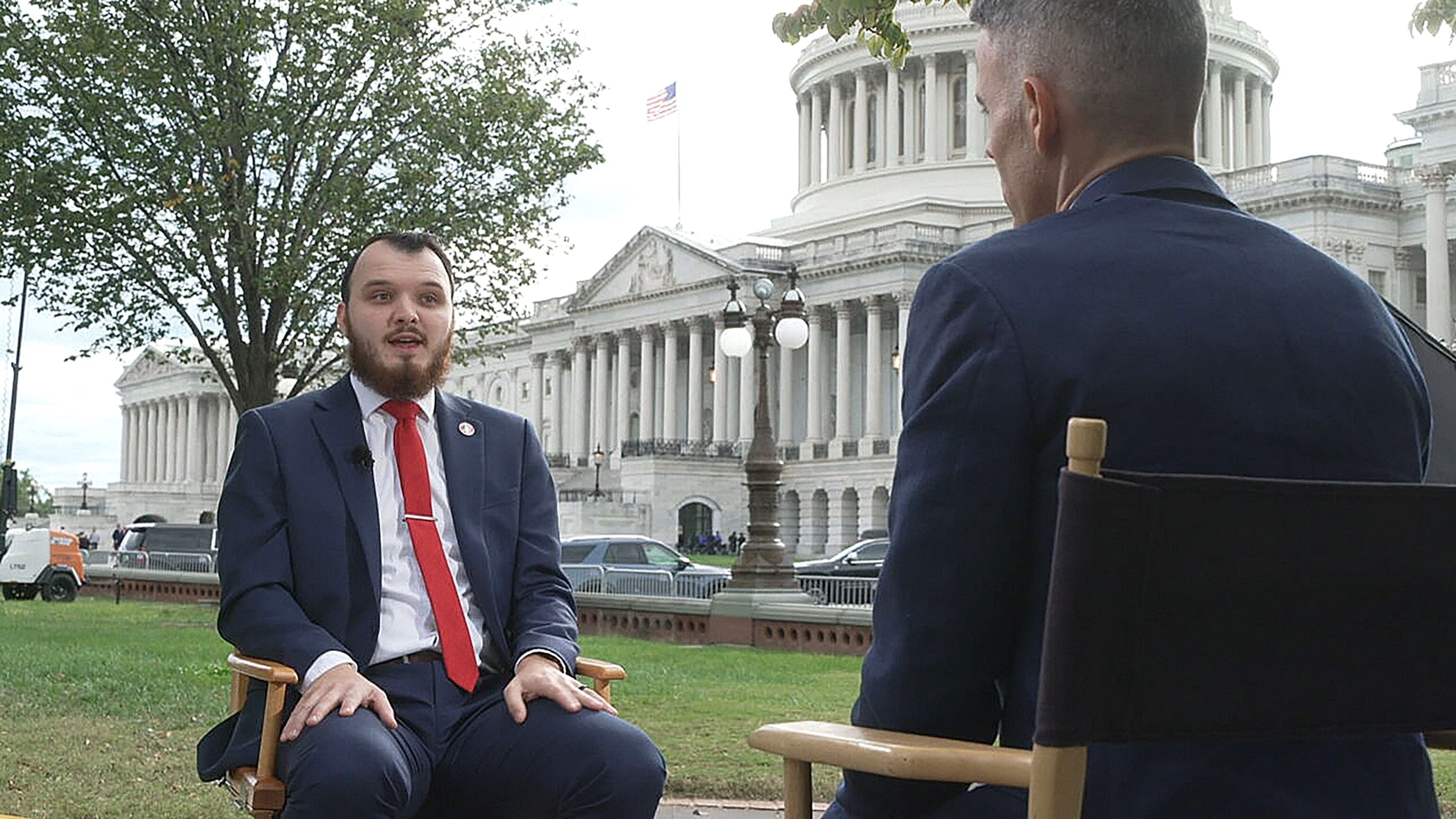Shot 5 times, domestic abuse survivor implores Supreme Court to uphold gun ban
The justices will rule on a law denying guns to people under restraining orders.
LOS ANGELES -- La'Shea Cretain still carries all five bullets from the day her ex-boyfriend shot her in 1996.
"I have three in my head. I have one in my right side and one in my left side," said the 45-year-old mother of two, who still requires regular surgeries to manage the injuries.
"I've named the bullets my 'faith,' 'fight,' 'forget,' 'forgive,' and my 'family,'" she said. "I have to carry them the remaining days of my life, and they are a part of me."
Still shaken by the horrific attack, Cretain says she's newly alarmed by efforts to overturn a law aimed at preventing what she endured: a federal ban on Americans subject to domestic violence restraining orders from obtaining guns.

"I just couldn't believe it," she said of a legal challenge that has reached the U.S. Supreme Court. The justices on Tuesday will hear arguments in the case.
Gun rights advocates say the 30-year-old law violates the Second Amendment, lacking any historical precedent.
"This statute actually ends up disarming a bunch of law-abiding or otherwise good people that you might not expect when you first look at it," said Aidan Johnston, a lobbyist with Gun Owners of America.
The Biden administration and gun safety groups insist the restriction is consistent with tradition, calling it critical to protecting women from their abusers.
"Victims of domestic violence are more likely to be murdered by their abuser with a gun than all other means combined," said Angela Ferrell-Zabala, executive director or Moms Demand Action, a gun control advocacy group.
Every year, judges issue thousands of domestic violence restraining orders, also known as protective orders, to limit contact between an aggressor and a victim. Since 1994, those orders have also been uploaded to the national background check system to prevent someone from legally purchasing a gun.

"Some states go far beyond this by ensuring compliance, not just that they're prohibited from purchasing one, but that they're actually giving up the firearms that are already in their possession," said Kelly Roskam, director of law and policy at the Johns Hopkins Center for Gun Violence Solutions.
More than 12 million American adults are victims of domestic abuse every year, and when a gun is involved, it's five times more likely someone will die, public health researchers say.
Since 1998, the law has blocked more than 77,000 attempted firearm purchases by people under domestic violence restraining orders, according to FBI data.
"It's almost certain that if the Supreme Court were to completely invalidate this law -- and that the logic of that decision extends to state domestic violence protection laws over firearm removals -- certainly more people are going to die," Roskam said.

The high court case involves Zackey Rahimi, a drug dealer in Texas with a history of domestic violence who is now behind bars for assaulting his girlfriend and threatening her and another woman with a gun.
He is challenging a federal charge of illegal gun possession, in violation of a domestic violence restraining order, as unconstitutional.
The 5th U.S. Circuit Court of Appeals, in a decision last year, sided with Rahimi, concluding the prohibition against gun possession by people subject to restraining orders lacks sufficient historical precedent.
In a landmark decision last year, the U.S. Supreme Court expanded individual gun rights, saying lower courts should only uphold gun safety laws that have close historical ties to the nation's founding. But some legal experts say the decision has only created more ambiguity and confusion.
"They should clarify how closely analogous these historic laws need to be," said Roskam, who argues that modern problems -- like domestic violence using a firearm -- need modern laws that may lack exact predecessors from the time of the nation's founding.

Johnston says the bar for constitutional gun restrictions must remain high.
"Judges often issue mutual restraining orders, which disarms both the victim and the abuser at the same time," he said. The court is "ruling on that very narrow question of whether a civil protective order can take away your constitutional rights."
Last year, bipartisan majorities in Congress enacted a ban on gun possession for five years for anyone convicted of a "misdemeanor crime of domestic violence" against a current or former intimate partner.
While restraining orders are issued without a trial, much less a conviction, alleged abusers are granted notice and hearing before a judicial official, legal experts note.

"What the data shows is that when states prohibit people subject to domestic violence protective orders, we see overall reductions in intimate partner homicide, but also bigger reductions in firearm intimate partner homicide," Roskam said.
Cretain, who as a teenager was unaware of domestic violence restraining orders, says she will never know for certain whether seeking one against her ex-boyfriend could have made a difference.
After shooting Cretain five times in front of their then-4-month-old daughter Shayla and other family members, he turned the gun on himself.

"People that are a danger to themselves or to someone else, they need to not have the access to a deadly weapon, because guns make situations more fatal, makes abuse more fatal," said Shayla Cretain, now 27.
"Right now, we can stop it," she added. "The Supreme Court needs to reverse this [appeals court] decision so that nobody else, no other families, no other kids have to go through what we went through."




